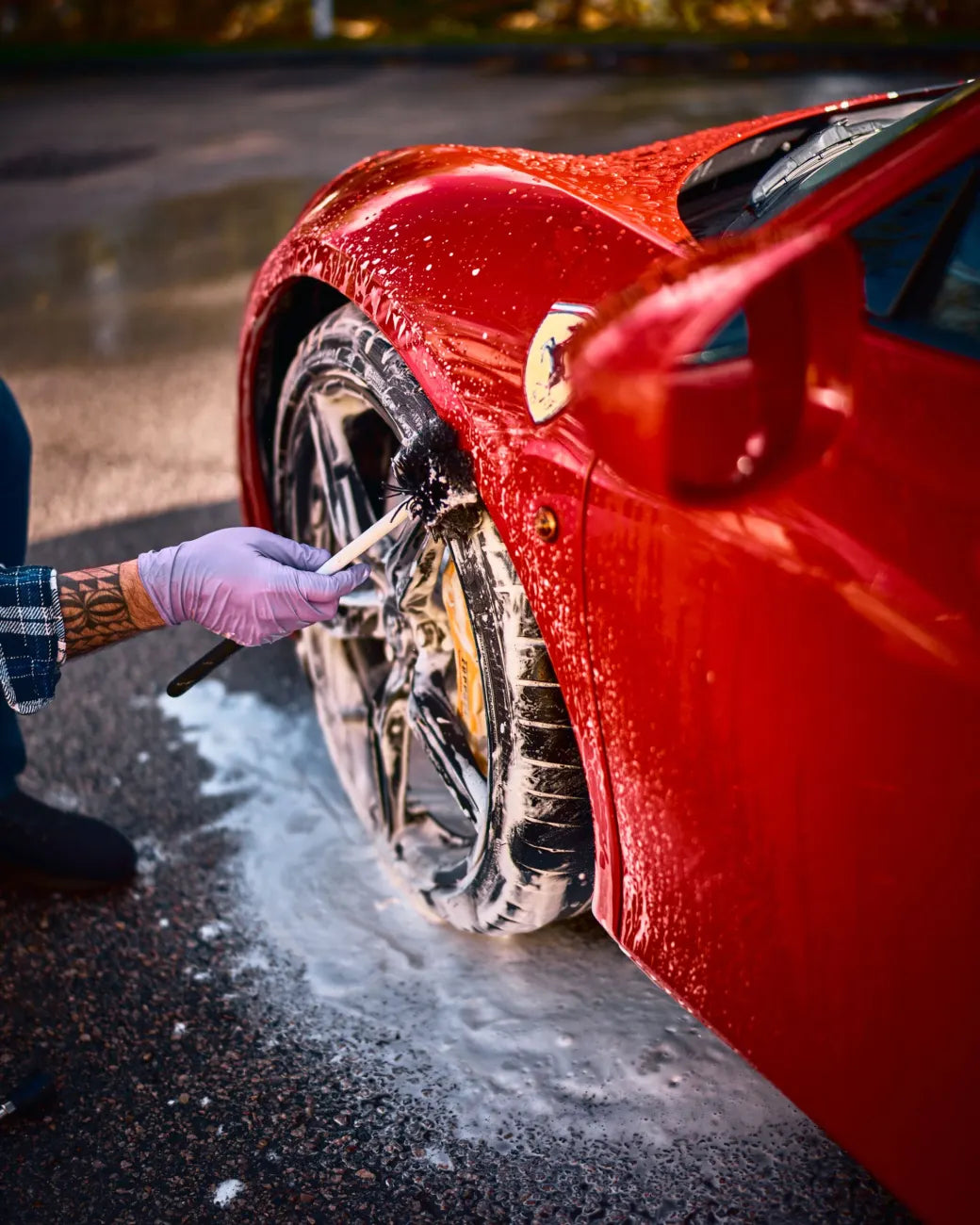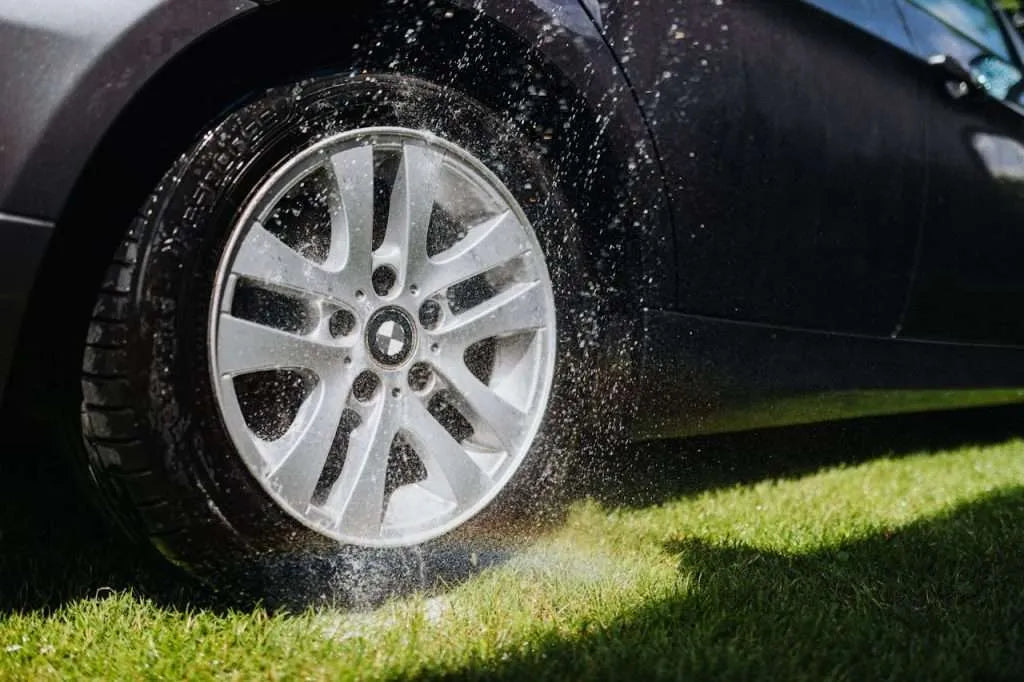
The Ultimate Guide to Keeping your Wheels Clean and Looking Brand New!
Alloy Wheels are a standout feature of any vehicle and endure all types of weather conditions. This means they can often quickly accumulate dirt, brake dust, and road grime, diminishing their appearance and lifespan without proper care.
As a result, cleaning your alloy wheels correctly is an important step in maintaining their finish while preventing long-term damage.
That's why in this guide, we'll be covering the best cleaning techniques so you can keep your wheels sparkling.
Why is Cleaning your Wheels Regularly so Important?
-
Preventing Corrosion and Wear
Dirt, moisture and road salt can cause oxidation and corrosion, especially during colder months.
Regular cleaning prevents these elements from settling on the wheel surface and causing long-term damage.
-
Maintaining the Appearance of your Wheels
We all appreciate good looking cars. In this regard, remember that a clean set of alloy wheels enhances the overall look of your vehicle.
Over time, neglecting your wheels can result in stubborn stains and dulling, making your car appear older and less well-maintained.
-
Avoiding Build-Up of Brake Dust and Road Grime
Brake dust is made of metal shaving, carbon, and adhesives that stick onto your wheels. If left unattended, it can become difficult to remove and may even cause pitting in the wheel's surface.
What to use when Cleaning your Wheels
Choosing the right cleaning products is key to ensuring a spotless finish without damaging the protective coating of your alloy wheels. These are some of the aspects you should be paying attention to:
-
Choosing a PH-neutral wheel cleaner
A PH-neutral cleaner is the safest choice as it effectively removes dirt and grime without harming the wheel's finish. Avoid strong acidic or alkaline cleaners as they can weaken the protective coating and cause discolouration.
-
Soft Brushes Vs Sponged - what works best?
A soft bristled brush is ideal for getting into tight spaces between spokes and around lug nuts. Sponged and microfibre cloths work well for larger surface areas, but avoid using rough materials that could scratch the wheels.
-
Why should you avoid acidic or abrasive cleaners?
Acidic-based cleaners might be effective at cutting through grime, but they can also strip the protective coating and leave the metal vulnerable to corrosion. Abrasive tools, such as wire brushes or scouring pads, should also be avoided as they can leave permanent scratches.
Step-by-Step guide to cleaning alloy wheels safely
Since you want a clean and shiny car but also durable alloy wheels capable of giving you the best performance, it's always a good idea to follow these steps for safe and effective alloy wheel cleaning.

Preparing your wheels before cleaning
Start by rinsing your wheels with water to remove loose dirt and debris. This prevents particles from scratching the surface during scrubbing. However, don't use a strong jet of water when washing them.
-
Applying the right cleaning solution
After rinsing your wheels with water you want to go ahead and spray a PH-neutral wheel cleaner evenly across the surface, paying extra attention to areas with heavy dirt build up.
Let it sit for a few minutes to break down grime before scrubbing.
-
Scrubbing techniques to remove dirt without scratching
Now, it's time to use a soft-bristled brush to gently clean the wheel, working in circular motions. For hard-to-reach areas, a detailing brush can help remove dirt from lug nuts and between spokes.
-
Rinsing and drying for a streak-free finish
Finally and as the last step, thoroughly rinse the wheels with clean water to remove any remaining cleaner.
Use a microfiber cloth or a dedicated wheel-drying towel to prevent water spots and streaks.
Professional Wheel and Cleaning Restoration
While regular maintenance helps keep your alloy wheels in great condition, some issues require professional attention. For example, if your wheels have deep scratches, stubborn stains, or signs of corrosion, a professional alloy wheel refurbishment service can restore them to their original shine.
Additionally, if you notice discolouration, peeling clear coat, or structural damage, it's best to consult an expert.
Keep in mind that by following the right cleaning techniques and using safe products you can maintain the appearance and durability of your alloy wheels. However, when damage goes beyond regular cleaning, seeking professional care is the best way to ensure long-lasting results.
